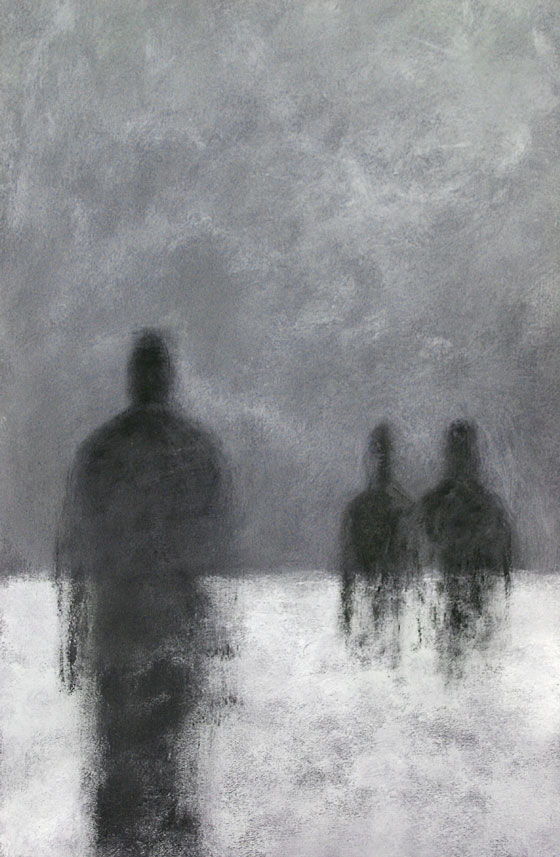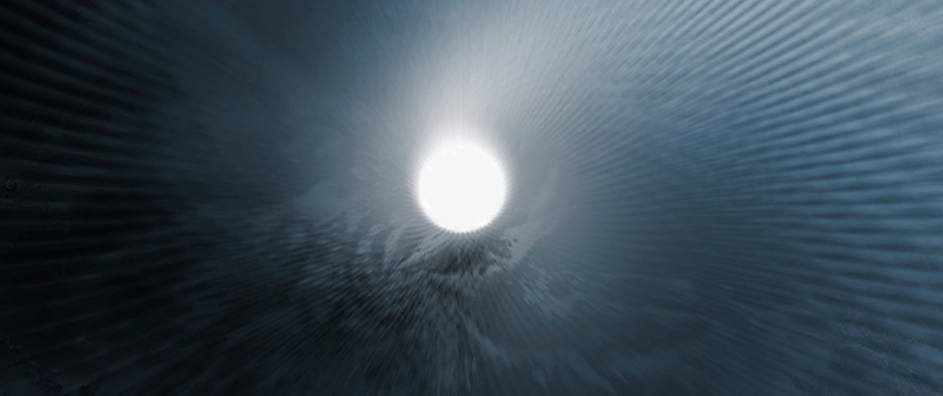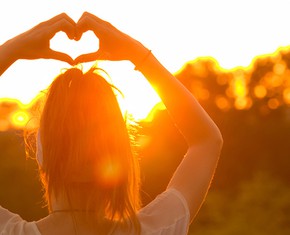The views expressed in our content reflect individual perspectives and do not represent the authoritative views of the Baha'i Faith.
The notion that nothing lies beyond biological death can be at once appealing to our skeptical side and terrifying to that deep part of ourselves that dreads annihilation.
The thought of ceasing to exist can seem so disturbing we might try forcing it from our minds by tying our moments together with a seemingly endless series of distractions. That, of course, doesn’t really work. It leads to wasting time through distraction, driven by fear. Furthermore, if nothing exists after death, then there won’t be anything to care about or bother us after we’re gone.
As I sometimes put it: If there’s nothing after death, then there’s nothing to fear.
Nothingness after death also would absolve us of any further responsibility, and represent an end to any toil we might have faced in this life.
Oblivion sounds rather relaxing, right?
Some would say that the spiritual teaching of life beyond biological death—found in the Baha’i Faith and in just about every other religion—is merely a means to soothe primitive fears, or give those in positions of authority an advantage. People stuck in miserable circumstances in order to prop up the wealthy and powerful could easily be strung along by promises of paradise beyond the grave. Wouldn’t that make it easier to control them, and keep them trapped in their circumstances?
And so, the argument goes, the concept of life after death is a feel-good fairy tale, sometimes used as a tool to control the masses. It’s an interesting idea. However, I recently pondered another perspective.
If I do exist eternally, that means I’ll also be stuck with myself for, well, eternity.
Let that sink in. It takes some of that “fairy tale” veneer off the concept of an afterlife; doesn’t it?
In light of this concept, the idea of personal annihilation at death might appear more comforting. But what if we don’t get off that easy?
Baha’u’llah assures me that I won’t:
Know thou of a truth that the soul, after its separation from the body, will continue to progress until it attaineth the presence of God, in a state and condition which neither the revolution of ages and centuries, nor the changes and chances of this world, can alter. It will endure as long as the Kingdom of God, His sovereignty, His dominion and power will endure. – Gleanings From the Writings of Baha’u’llah, pp. 155-156.
Numerous passages in the Baha’i writings indicate that not only will our souls continue after biological death, but that the coming realm is a dynamic place where we can keep making progress. According to some near-death experience accounts I’ve read or seen on video, the people who went through them said the souls they encountered on the other side seemed busy with various tasks and duties.
 So not only will I be stuck with myself in eternity, I may not get to just sit around basking in bliss, either.
So not only will I be stuck with myself in eternity, I may not get to just sit around basking in bliss, either.
The next logical question seems to be: what can I do now to help ensure that the experience of being with myself for eternity, while continuing to progress and have tasks and duties, will be a pleasant one?
The Baha’i Faith teaches that during this life, we must prepare ourselves for the next stage of existence by developing the spiritual abilities we’ll need to thrive there: the higher human virtues like love, selflessness, patience, courage and compassion, to name only a few. It replicates the process of unborn babies developing the things they will need in this life; such as lungs, arms, legs, eyes and so forth. The key difference: babies develop those things through no will of their own, while it’s up to us—through our own deliberate efforts—to develop our spiritual virtues during our biological lives here on Earth.
The Baha’i Faith also teaches that Heaven and Hell aren’t literal places, but rather states of being that we can experience in any realm. In basic terms, Hell means separation or remoteness from God, while Heaven means nearness to God. Delving deeper into that concept, I might surmise that being stuck in eternity with an unpleasant self, or one weakened by a lack of virtue, could seem like a form of Hell.
That places considerable responsibility on us, and demands great effort and diligence in this life. Indeed, Baha’u’llah indicates, right up until our last moments here:
He should forgive the sinful, and never despise his low estate, for none knoweth what his own end shall be. How often hath a sinner, at the hour of death, attained to the essence of faith, and, quaffing the immortal draught, hath taken his flight unto the celestial Concourse. And how often hath a devout believer, at the hour of his soul’s ascension, been so changed as to fall into the nethermost fire. – The Book of Certitude, pp. 194-195.
















Comments
Sign in or create an account
Continue with Googleor